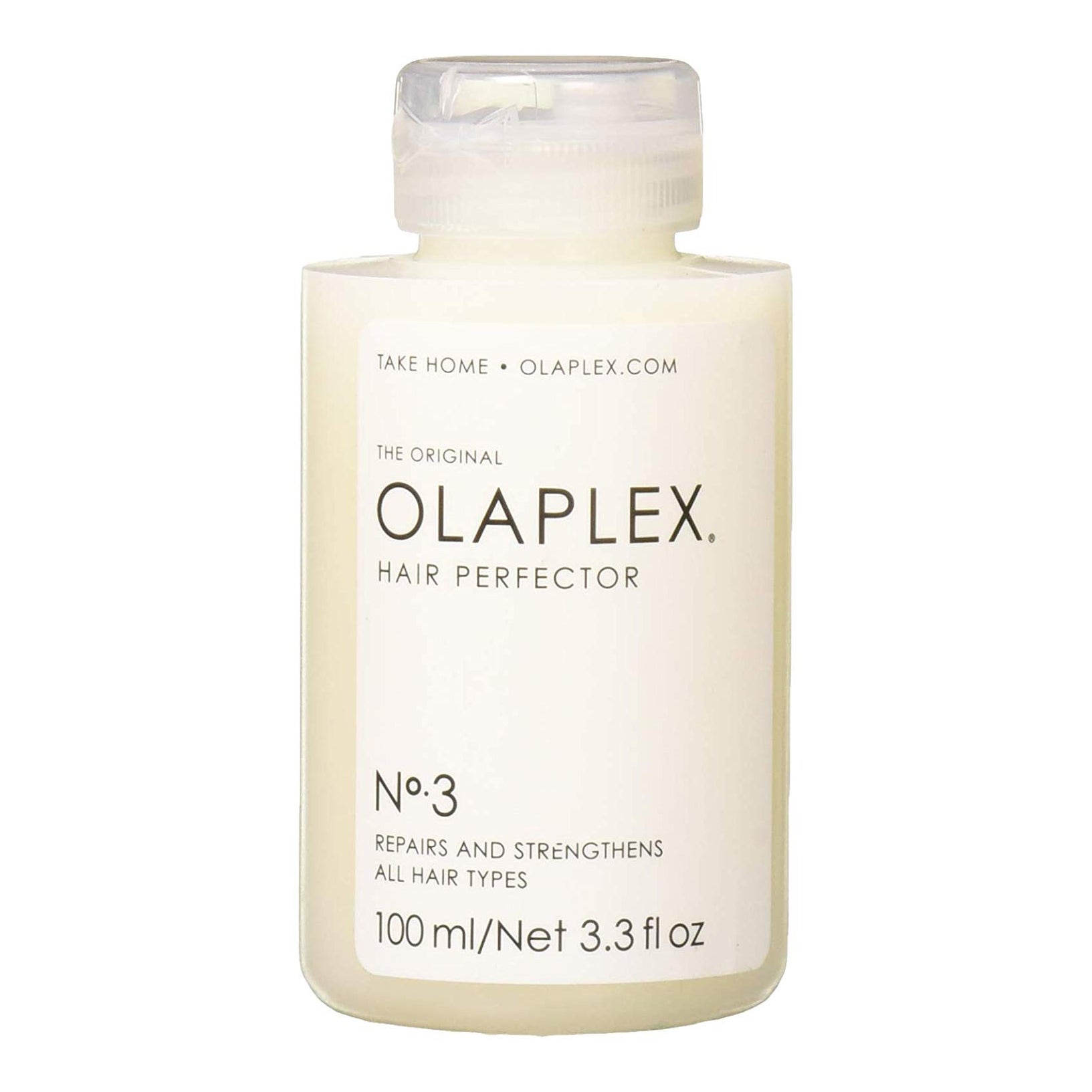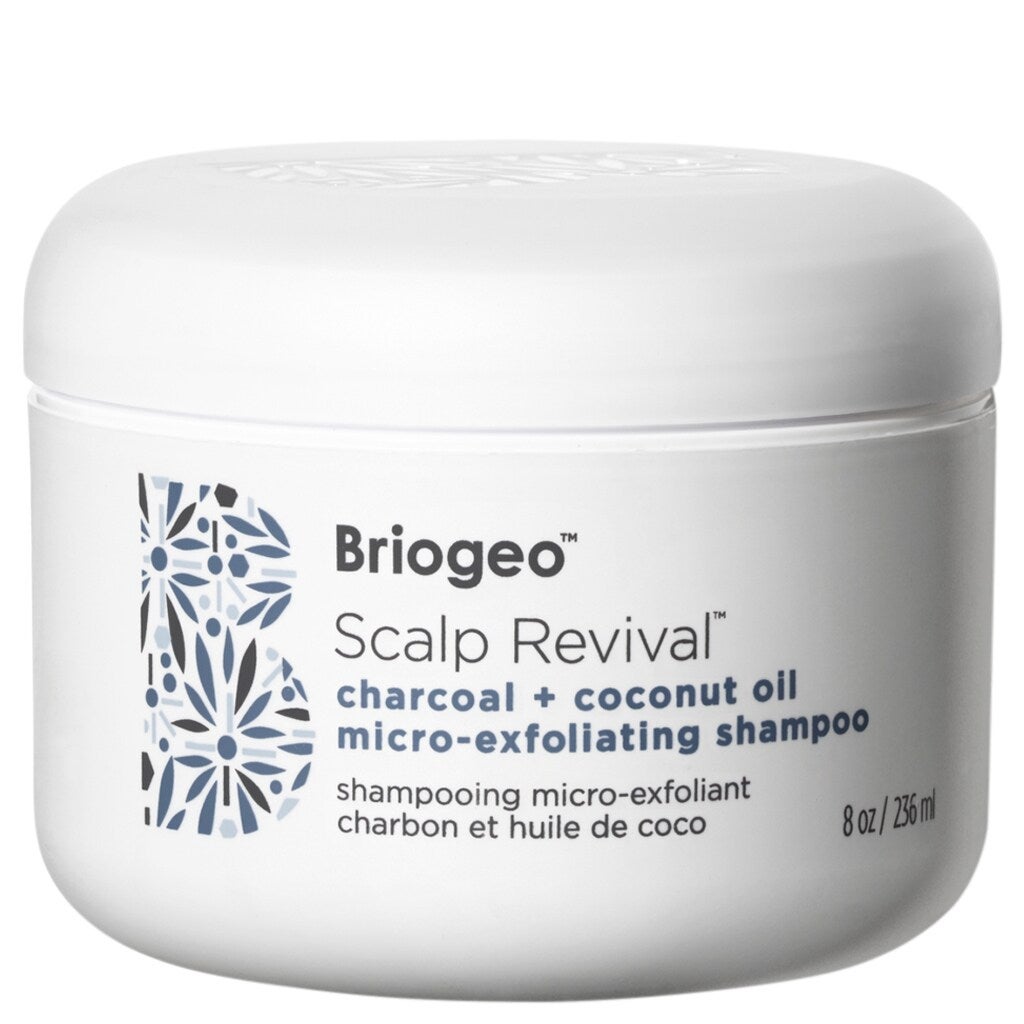One year. That's the goal that I gave myself when I walked out of the salon last December — just minutes after chopping 10 inches off my long, waist-length hair.
After straightening my curls nearly every week for most of my life — a common practice in the Latinx community — I decided it was finally time to embrace them. For me, that meant committing to a heat-free routine for at least 365 days, a number that felt so far away at the time.
I wanted the curls that I had when I was a kid — springy, smooth, and full of shine. Instead, after years of heat damage (including the torture tests of my pageant competition days), my hair was a strange mix of waves, limp curls, and random straight pieces. After several friends recommended that I cut off the damaged ends of my hair, I found myself in the chair of New York-based curl expert Mona Baltazar, a.k.a. @themonacut, toward the end of 2018. She took my hair from mid-length to above my jawline, and I immediately saw a lot more spring in my curls.
AdvertisementADVERTISEMENT
But that was just the beginning of my curl restoration journey. After the chop, I had to be committed to full heat-damage rehab. "Many girls have the misunderstanding that they have to find products that are going to make their hair curly," says Baltazar. "If you're transitioning, those aren't your curls. You want to focus on the process of getting your real curl pattern back." Baltazar sent me off with one final piece of advice: "You have to have patience." I had no idea then just how much I would need.
When I got home after my haircut, I immediately tossed my straightening iron and curling wand in a bag to donate. (I did keep my blowdryer and diffuser for days it was too cold to air dry.) Then, I invested in finding the right products: clarifying shampoos, deep conditioners, and bonding treatments.
While I had heard that embracing your curls took a lot of work, I didn't realize it would end up being more involved than my previous routine. Before my curly hair journey, I would just pick up whatever curl-defining creams were around, or straighten it at the salon so I didn't have to style it for days. Now, I was cleansing, conditioning, deep conditioning, raking through leave-in, and then scrunching in some mousse or gelée – and if I screwed up and applied too much gel, I had to wash my hair and start all over again.
To be completely honest, there were many moments in those first few weeks when I hated my curls. They weren't twisting the way I envisioned, the length made me feel like a wet poodle most of the time, and sometimes, I felt a sense of regret for chopping it all off.
AdvertisementADVERTISEMENT
One of the toughest moments was when I went to my first wedding after embracing my curls. Growing up, going to events was synonymous with going to the salon — mostly because of the widespread belief in the Latinx community that curly and natural textures are deemed "unprofessional" or "less elegant." As I drove to upstate New York for the ceremony, I found myself struggling to overcome the mindset that my curls weren't enough for the formal event. I even picked up a mini curling iron at the drugstore near the hotel the day before the wedding, tempted to style them to better match people's expectations.
Once I got back to my hotel room, I ended up fighting that urge. That's when I realized this challenge was about so much more than just my curls. It was about shaking off strict cultural standards and standing up for something that I wanted to do for me. Growing up in a Dominican household, my mom thought she was doing the best thing for me by getting my hair straightened every Sunday. Now, I know that the best thing for me resembles something different.
When I walked into the wedding with my curly bob, I was admittedly a little nervous. But soon, I was getting so many compliments from women pointing out that I was the only person in the room wearing my natural curls. Once I shifted my perspective to see that as a good thing, and to celebrate my individuality, I had an incredible time.
AdvertisementADVERTISEMENT
“
I realized this challenge was about so much more than just my curls. It was about shaking off strict cultural standards and standing up for something that I wanted to do for me.
”
Looking back, I'm happy that I didn't succumb to the pressure, because that would've meant taking steps back in my journey. "Anytime you put chemical [relaxers] in your hair or you straighten it, you're manipulating the natural pattern of your hair, and that means you have damaged it. " says Baltazar.
As more time passed, I started to notice my hair's natural curl pattern emerging. Those pieces in the front that once refused to curl were perfect spirals after six months. My hair overall had more luster and shine, it had grown down to my shoulders, and I noticed way less loose hair in my shower drain after washing it.
My hair was evolving and, with that, I realized that so was my styling routine. While definition was a priority at first, it eventually became about fighting frizz and then maintaining moisture. I wasn't scrunching as vigorously the closer I got to the 12-month mark because my curls were already defined on their own. But the best part of all was losing the urge to heat-style my hair. Even when I had to blow dry, I used the cold-air setting to reduce damage. By month eight, I developed a routine where I washed at night, laid my head strategically on silk pillowcases, and woke up to air dried curls in the morning.
When I finally reached the one year mark, I couldn't believe that I had made it that far without flatironing my hair — which, at one time, felt like something I needed to do every week. I thought I wanted to celebrate my year-long journey by going to the hair salon and straightening my hair to celebrate its duality, but when the time came, I felt zero desire to take a hot tool to it. I love my curls and they feel representative of me now.
AdvertisementADVERTISEMENT
After 365 days, my hair is healthier — and so am I. Free from the cultural and societal standards I once felt stifled by, I now wear my curls to business meetings, on-camera, and to special events. I'm putting myself out there more at work, just celebrated a promotion, and have connected with other fellow Latinas, who like me, were struggling with their curly hair journey. When I finally found the power within myself to commit and step out of my comfort zone, it reverberated in every aspect of my life.
Patience was crucial every step of the way, and now, my curls are more defined than I ever could have imagined. Over the past year, I've gotten two curly cuts, perfected my hair routine to a science, and learned new techniques, like co-washing, from the incredibly supportive natural hair community.
Sure, there are days when my curls just aren't working for me — some mornings, my strands fall flat or my frizz is on overload. But most of the time, I'm ecstatic with how they turned out. It's a continuous learning journey to embrace everything that comes with this new chapter of self care. My hair is growing and changing, and so am I.
At Refinery29, we’re here to help you navigate this overwhelming world of stuff. All of our market picks are independently selected and curated by the editorial team. If you buy something we link to on our site, Refinery29 may earn commission.
AdvertisementADVERTISEMENT









